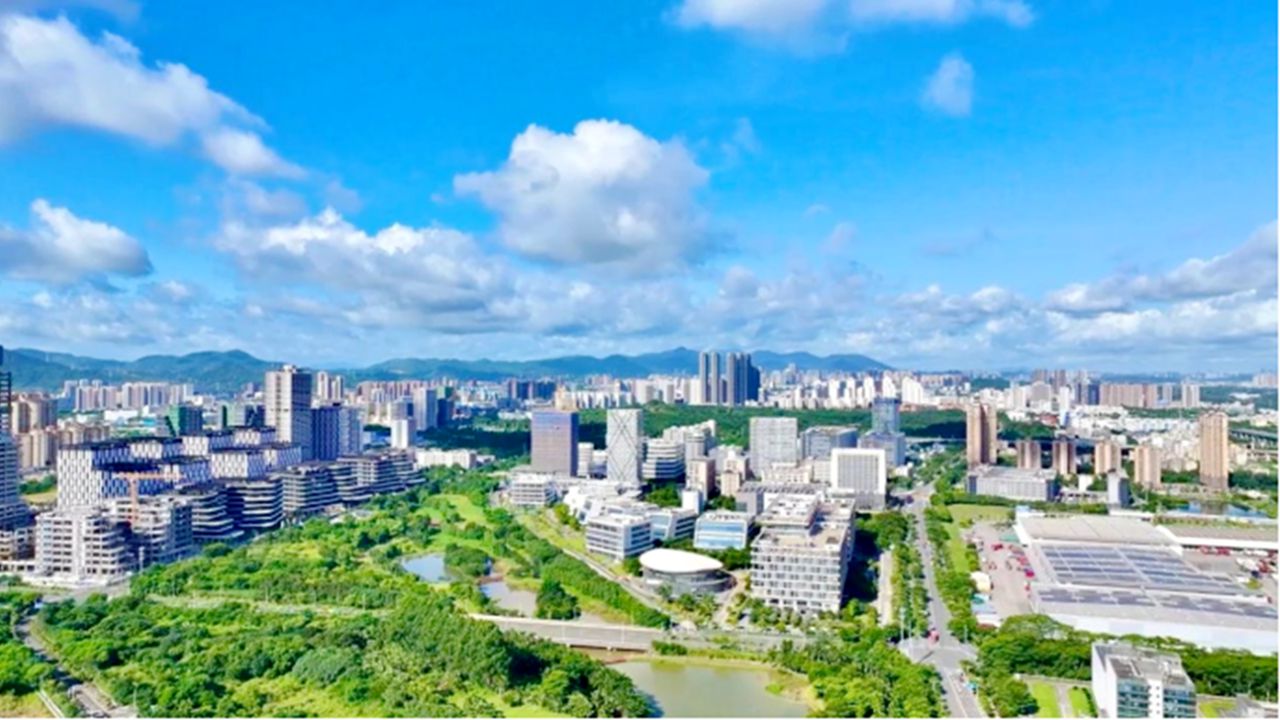Centralized wastewater treatment plant reduces companies' expenses
Writer: Cao Zhen | Editor: Zhang Zhiqing | From: Original | Updated: 2024-11-26
A newly established wastewater treatment plant within the Shenzhen State Biological Industry Base located in Pingshan District is the city’s first and only treatment facility dedicated to serving a biopharmaceutical base. This initiative aims to alleviate the wastewater treatment burden on enterprises, reducing their operational expenses while ensuring compliance with environmental regulations.

An aerial view of the Shenzhen State Biological Industry Base in Pingshan District. Photo from Pingshan Media Center
With an investment of 448 million yuan, the plant spans 2.08 hectares with facilities installed underground. It has the capacity of processing 10,000 cubic meters of wastewater daily, serving enterprises within a 330-hectare radius. The plant provides operational convenience to enterprises, aiding in cost savings, lowering industrial project investments, and mitigating environmental risks, while contributing to the preservation of river ecosystems.
Notably, in addition to wastewater treatment for existing enterprises in the base, the plant also extends its benefits to newly established industrial parks nearby, such as ZC Bio-Med Park and Yesun Life and Health Technology Park.
Company representatives have expressed their satisfaction with the new plant. Xie Bensong from Shenzhen Salubris Pharmaceuticals Co. Ltd. mentioned that since Salubris’ factory commenced operations in 2013, it has encountered significant challenges in treating production wastewater and meeting stringent environmental compliance standards.
“Previously, we handled industrial wastewater in-house, which not only required complex processing techniques but also resulted in high treatment costs. Now, the new plant has streamlined our treatment processes. Looking ahead, Salubris will launch new projects in Pingshan,” stated Xie.
Wang Wenqiang from the company agreed that since the implementation of the new plant, Salubris has witnessed a reduction of up to 40% in material spending, electricity usage, equipment maintenance, and other operational costs. The relaxation in discharge standards has notably lowered environmental compliance risks, Wang said.
Similarly, China Associate Pharmaceutical Co. Ltd. promptly connected to the centralized wastewater treatment plant. Manager Feng Xianli highlighted that centralized treatment is key to achieving both economic and environmentally friendly practices for the company. “Centralized treatment has slashed our processing costs by almost 50%. The plant employs more advanced and stable processing technology than our own, significantly lowering the risk of exceeding wastewater emission standards,” stated Feng.
Li Jing from Shenzhen ScienCare Pharmaceutical Co. Ltd., which transited from outsourcing wastewater disposal to building an in-house treatment station, voiced confidence in the new centralized treatment plant's ability to reduce costs and enhance environmental compliance significantly.
Pingshan District, known as a hub for the biopharmaceutical and high-end medical device industries in Shenzhen, has witnessed robust growth in the biopharma sector. Leveraging the Shenzhen State Biological Industry Base, Pingshan now hosts 1,261 biopharmaceutical enterprises, including 108 firms with annual operating revenues exceeding 20 million yuan. Notable companies such as Sanofi, Main Luck, Hepalink, and Salubris are among the key players contributing to the district's dynamic industry landscape.